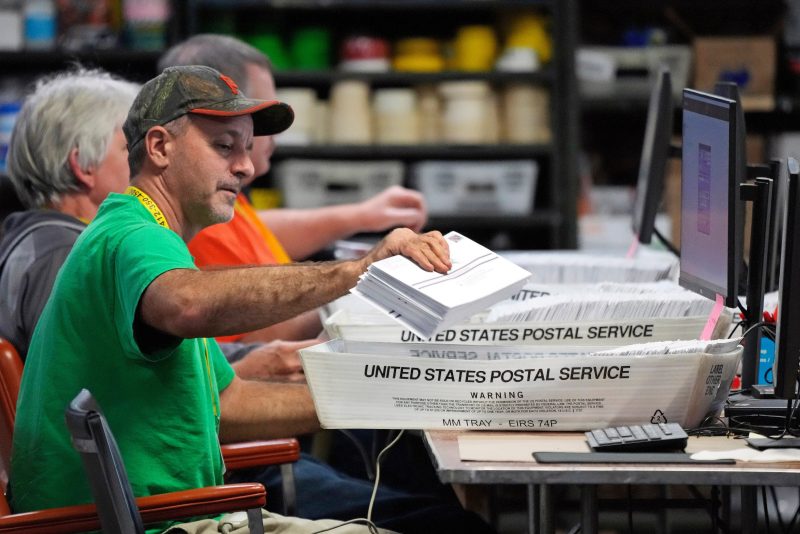In recent weeks, Republicans have come under fire for their controversial lawsuits targeting overseas and military voting, sparking a wave of backlash and criticism from various quarters. The lawsuits, which allege that certain ballots from these groups should be disqualified, have ignited a heated debate over the importance of ensuring that all eligible voters, including those serving abroad in the military, have their voices heard in the electoral process.
The crux of the issue lies in the interpretation of state election laws and regulations regarding the submission and counting of overseas and military ballots. Republicans argue that these ballots should be subject to strict scrutiny to prevent potential fraud and ensure the integrity of the voting process. They claim that certain ballots received after the deadline or lacking proper signatures should be excluded from the final tally.
However, critics of the lawsuits have raised concerns about the disproportionate impact they could have on overseas and military voters, who may face challenges in meeting strict deadlines and requirements due to their unique circumstances. These voters serve their country with valor and dedication, often facing demanding conditions that can make it difficult to comply with all the technicalities of the voting process.
Moreover, opponents of the lawsuits argue that disenfranchising overseas and military voters goes against the fundamental principles of democracy and the values these individuals are willing to risk their lives to defend. They point out that these voters deserve every opportunity to participate in the democratic process, regardless of the bureaucratic hurdles they may encounter along the way.
The lawsuits have also drawn attention to the broader issue of voter suppression and the ongoing efforts to restrict access to the ballot box, particularly among marginalized and underrepresented communities. Critics argue that the lawsuits targeting overseas and military voting are just one piece of a larger pattern of disenfranchisement that seeks to undermine the democratic rights of certain groups.
In response to the backlash, some Republicans have sought to clarify their intentions and emphasize the need for election integrity and accountability. They maintain that their lawsuits are intended to ensure fair and transparent elections, rather than disenfranchise specific groups of voters. However, the controversy surrounding these legal challenges has underscored the importance of safeguarding the rights of all eligible voters, especially those who serve their country abroad.
As the debate over overseas and military voting continues to unfold, it is clear that this issue transcends partisan politics and cuts to the core of our democratic values. Ensuring that every eligible voter has the opportunity to cast their ballot and have it counted is essential for upholding the integrity and legitimacy of our electoral system. Moving forward, it is crucial that policymakers and lawmakers work together to find solutions that protect and expand voting rights for all Americans, regardless of where they are serving or residing.


































